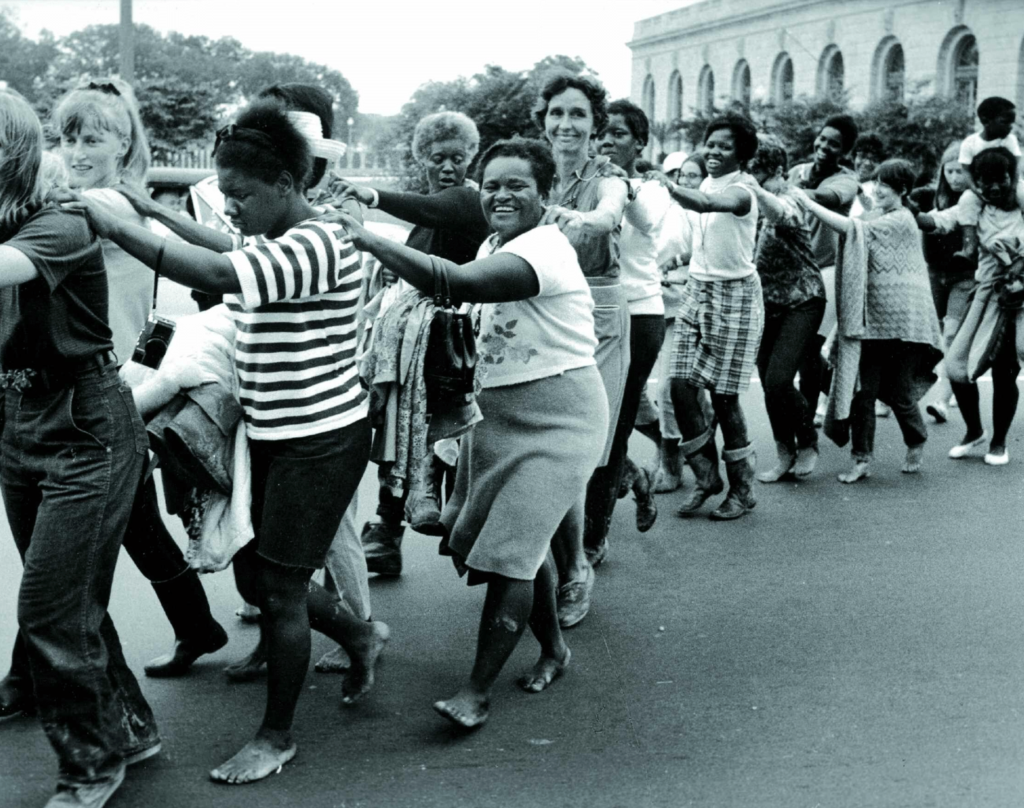Work Requirements for Child Tax Credits Are An Insult to Mothers (Ms. Magazine)
Sen. Joe Manchin has been demanding “work requirements” for qualification—but every mother is a working mother, and every mother knows that.
https://msmagazine.com/2022/04/13/work-requirements-child-tax-credit-mothers/

Upcoming Tax Day offers a painful reminder for many parents of the short-lived expanded child tax credit (CTC). The monthly payments—which ended last December—brought the U.S. closer to countries which have had a universal child benefit for decades. At last, mothers whose income was too low to pay taxes qualified, whether or not they had a paid job. The tax credits were wildly successful in reducing poverty, helping 36 million families nationwide, and lifting 3 million children out of poverty in one month alone.
A mother we spoke to in Altoona, Pa., was ecstatic. “The CTC changed my life,” she told me. “For the first time I was able to pay my gas and electric bill and my rent at the same time. And spend more time with my kids.”
Tragically, this relief from financial distress has been blocked by Senator Joe Manchin (D-W.V.) and every Republican in their refusal to pass the Build Back Better Act. As a result, those who needed it most are again deprived. Child poverty has increased by 41 percent since the credits expired. If the CTC was extended, the poverty rate among Black children could have been reduced by more than 50 percent.
Manchin has been demanding “work requirements” for qualification—but every mother is a working mother, and every mother knows that. While giving lip service to the contributions of grandparents, Manchin is suggesting that they too should go back to a job in order to receive the CTC.
Raising children is work—hard work. Like all caring, it requires skill and the ability to prioritize someone else’s needs. “Work” requirements belittle both the reproduction of the human race and child poverty. Since the pandemic, there is increased awareness that family caregiving is central to survival and to the economy—the world over. One Oxfam study put the monetary value of women’s unpaid care work at $10.8 trillion annually—the gross disparity between the value of the work and the poverty of the women doing it is infuriating.
The clash over “work requirements” has a history, of class and race, in Congress as in the women’s movement.
In 1972, Ms. magazine published “Welfare is a Women’s Issue” by the great Johnnie Tillmon, founder and leader of the National Welfare Rights Organization (NWRO). She wrote:
“If I were president, I would … go a long way toward liberating every woman. I’d just issue a proclamation that ‘women’s’ work is real work. I’d start paying women a living wage for doing the work we are already doing—child raising and house-keeping.”

Five years later, NWRO and Black Women for Wages for Housework teamed up at the National Women’s Conference in Houston, Texas, to defeat the proposal that promoted workfare—that is “work requirements”—as a condition for welfare. Highlighting the caring work most women do and the impoverishment we suffer as a result enabled us to bring together Black urban welfare mothers and white Southern housewives and win a pathbreaking resolution.
The pathbreaking resolution passed at the conference stated, “The elimination of poverty must be a priority for all those working for equal rights for women,” “Congress should approve a federal floor under payments to provide an adequate standard of living … And just as with other workers, homemakers receiving income transfer payments must be afforded the dignity of having that money called a wage, not welfare.”
Tillmon was right: “The ladies of NWRO are the frontline troops of women’s freedom. Both because we have so few illusions and because our issues are so important to all women—the right to a living wage for women’s work, the right to life itself.” But the multiracial movement she and other Black single mothers led for a guaranteed income was ignored by the white middle-class professionals who were assumed to speak for women’s liberation.
The movement for cash for caregiving was even accused of “institutionalizing women in the home.” Mainstream feminism prioritized breaking the glass ceiling, or at any rate getting a job—any job. But most jobs brought more caregiving, this time outside the home, often done by women of color and/or immigrants, for the lowest pay.
Most recently, the pandemic brought caregiving and the necessity of its financial recognition to the attention of many—or so we thought. The CTC does not officially acknowledge mothers as workers, as child benefits generally do. It does, however, acknowledge children’s poverty. It is up to us to connect the dots to acknowledge that children are poor because their mothers are poor.
The CTC is not yet finished. It has accelerated the movement for a permanent child benefit and for a care income that would eliminate women’s poverty, and therefore children’s poverty.
